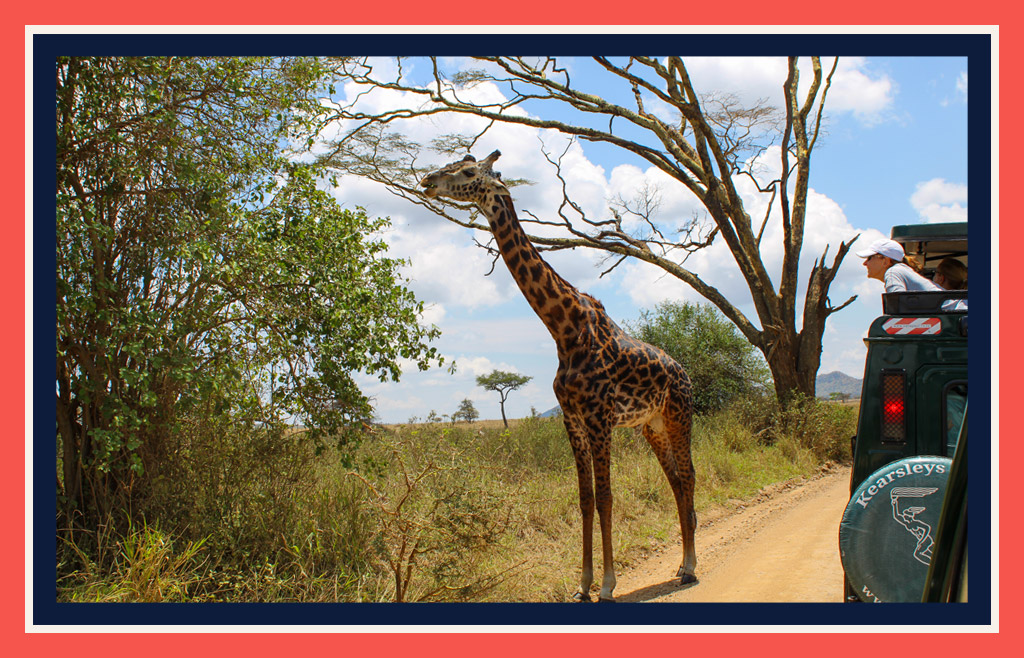You’ve been visualizing yourself on an African safari for ages and finally decided it’s time. But, the cost! Is it worth the expense? Don’t give up on that dream! I’ll explain a bit more about why it costs so much and suggest five ways to make a safari more affordable.
Our Safari
Even though I knew exactly what safari I wanted to take, I still had a hard time with the price of it. It’s probably the most expensive trip we have ever taken. That said, our safari in Tanzania and Kenya was absolutely amazing! Afterward, Art and I agreed that we understood why it was so expensive. We realized there are a lot of logistics involved in creating an enjoyable safari experience, and it’s reflected in the price.
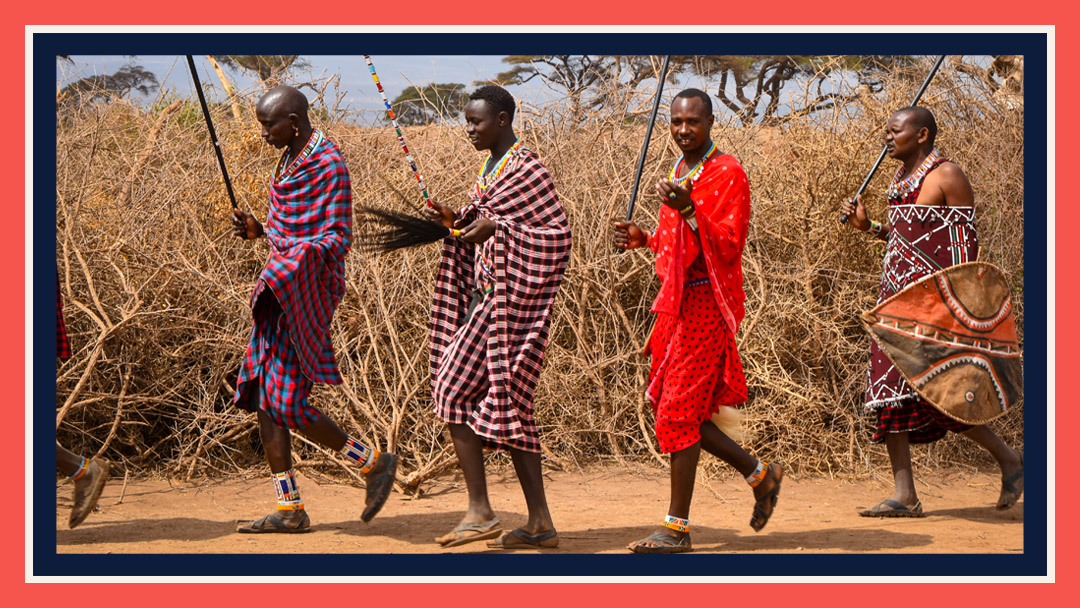
As a point of reference, the safari we took encompassed:
- One hot air balloon ride,
- Two countries,
- Two safari outfitters,
- Five on-tour flights,
- Five venues (national parks and conservancies),
- Seven hotels,
- Ten game drives, and
- 36 meals.
Now, that’s a lot of moving parts and potential for problems. But our trip went off without a hitch, not one hiccup. Although not readily apparent, there were a lot of things happening behind the scenes that made our trip magical. And making magic on a safari isn’t easy or inexpensive.
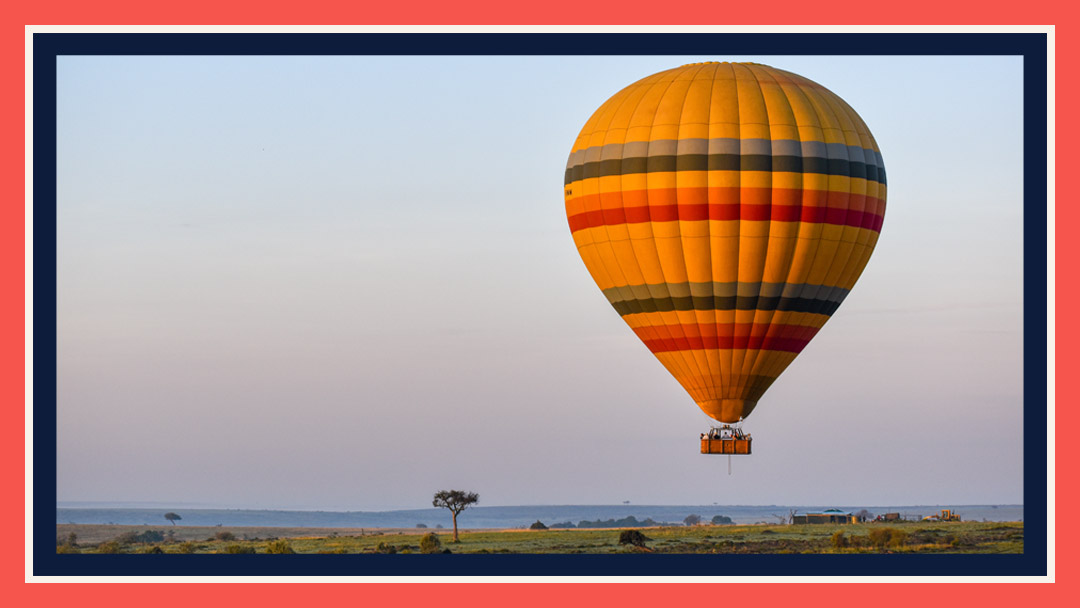
Transportation on Safari
Visiting multiple countries and game reserves gives you a better understanding of the areas and the lives of the people and animals native to them. Depending on your choices, getting from one location to the next can either be by road (and I use that term loosely) or by air.
By road.
Road travel is doable, but the roads are often dirt outside the major cities. The roads are rutted and quite bumpy, resulting in an uncomfortable ride, especially if you have back issues.
I am not exaggerating about the roads. Even though we were in safari vehicles most of each day, a travel companion’s fitness watch registered that she had walked over seven miles. That’s how bumpy the ride is.
These unpaved, rutted roads result in reduced driving speeds, which lengthens the drive time between locations.
Although traveling by road is less expensive, it is uncomfortable and less efficient.
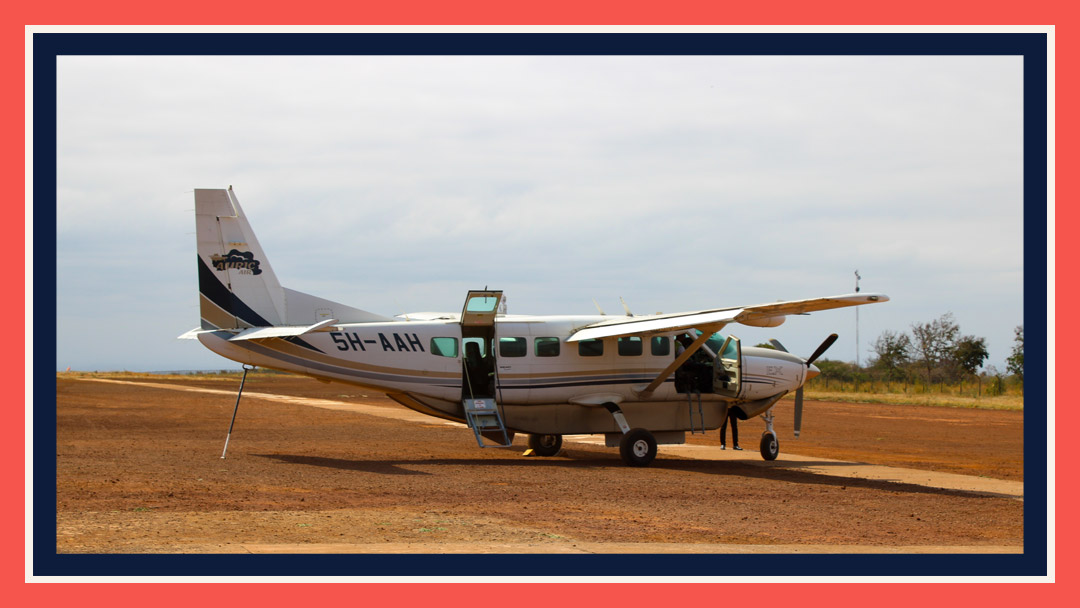
By air.
Traveling by air is a quicker but more expensive option. On the positive side, it allows you more time to see the animals, people, and culture you have come so far to experience.
I am thrilled to tell you these flights are on smaller planes. In my opinion, taking off and landing on dirt runways adds to the adventure!
Cost reduction tip #1
Take a safari that primarily utilizes road transportation from one location to the next.
It would be best if you considered the distance between venues. Your safari is all about game drives, which is where you need to maximize your time, not getting from one place to another. If you travel longer distances, spending the money on flights over driving is worth it.
Safari Locations
There are many places in Africa to take a safari. Determine what you want to see to decide where you should go.
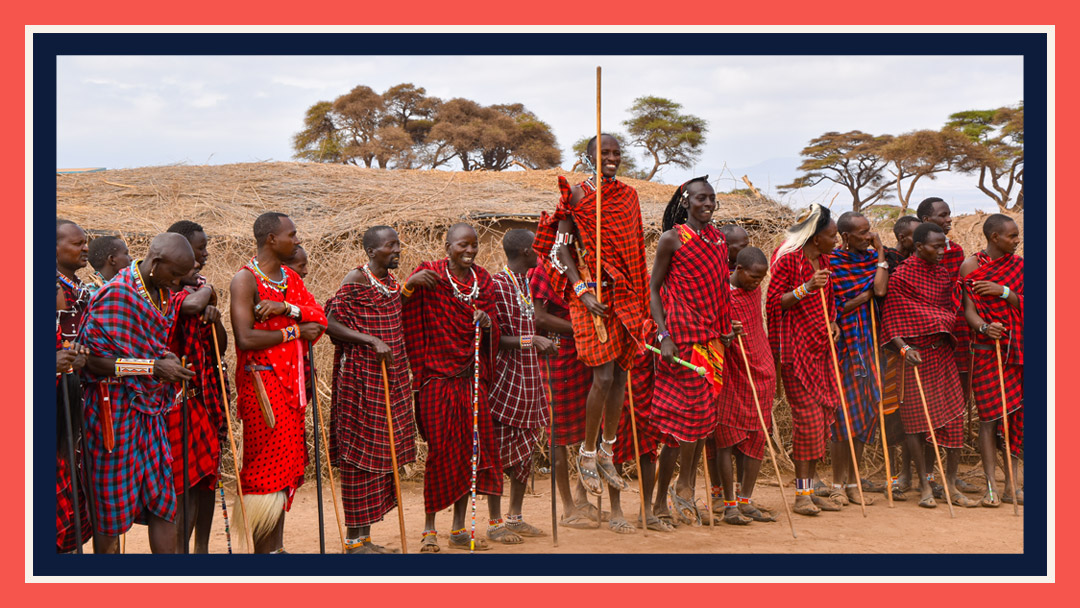
We focused on the traditional ‘big five’ and the Maasai culture. So, our choice was a safari going to Tanzania and Kenya. Visiting five national parks or conservancies allows each game drive to provide unique perspectives. If you want to see gorillas, your safari should include visits to Rwanda, Uganda, or Congo.
National Park and Conservation Area Fees
Game drives occur in national parks and conservancies; we were completely unaware of these locations’ costs before our trip.
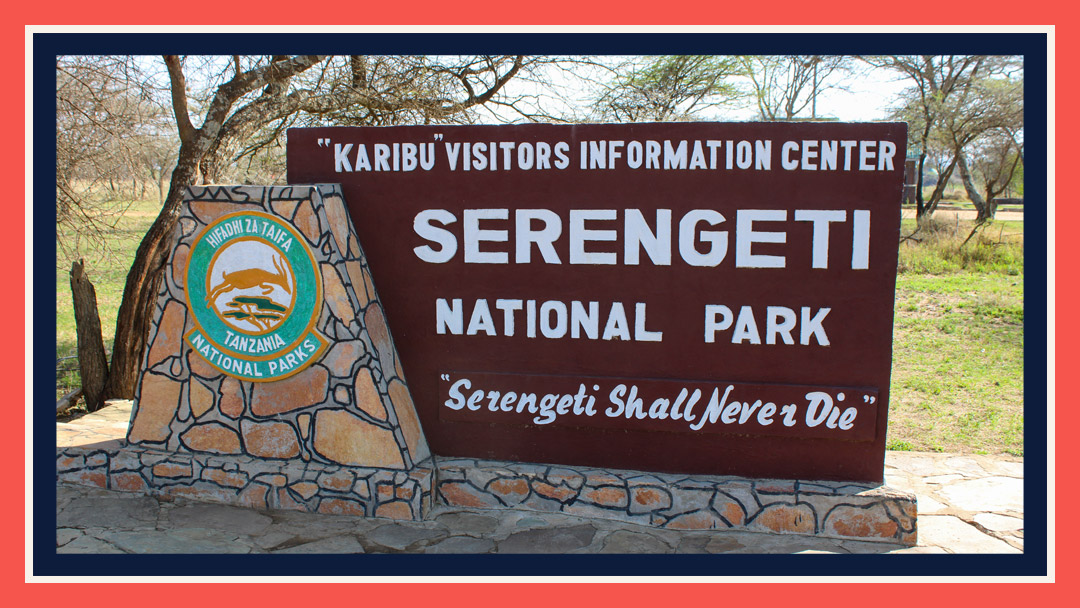
Like our national parks in the US, the national parks and conservation areas charge fees. Our national parks in the US are much less expensive to visit.
The parks and conservancies on our trip required per-person fees to enter and a per-vehicle fee. There are also overnight fees if you’re staying in the park, either camping or in a hotel.
For example:
A non-resident adult admission into Ngorongoro Crater costs just under $71 per day. In addition, there is a vehicle charge of $236. Camping costs an additional $35 per night in addition to the cost of the campsite. Every hotel and permanently tented camp in the park has a fee of $59 added to each night’s price. Each park or conservation area has its costs, and you cannot avoid them.
As you can see, these fees can add up quickly. It also shows you how important it is to have someone familiar with the ins and outs of safaris make your reservations.
Cost reduction tip #2
Reduce the number of locations you visit.
Doing your homework before you book your trip will pay off. Your research may reveal that you can see all you desire in just one country. You might even find that a single national park or conservancy will be all you need to visit.
Safari Lodging
You can stay in a permanently tented camp or a five-star luxury hotel. But remember, transporting everything necessary to operate a facility: food, water, fuel, staff, and supplies adds to the cost.
Additionally, all waste products must be removed from the lodge by truck.
Hotels are expensive to run in the best of situations. Operating any lodging facility, even a basic one, in these conservancies and national parks while mindful of conservation adds to the cost.
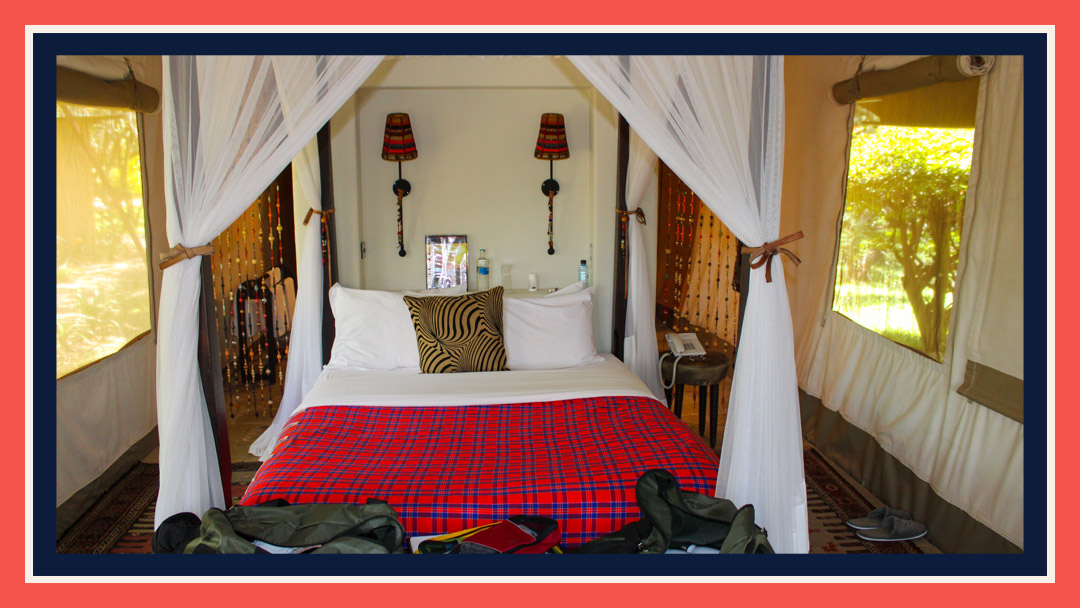
Try something different.
If you want to feel like you’re roughing it a bit, you might want to try staying in a permanently tented camp. Sleeping under a canvas tent allows you to hear nature around you in a more controlled environment. It’s more like glamping than camping. Each tent has a bathroom, including a shower and hot water. Some have regular beds, while others use cots.
Read the Details
Whatever tour you book, know what you are getting. Read the description of the lodging. If names of the accommodations are provided, look them up. Read the reviews. I’m at the stage of life where I don’t need luxury (not that I mind it), but I do need to be comfortable, especially when it comes to sleeping.
Cost reduction tip #3
Stay in lower-priced accommodations.
The parks you will be visiting are large and have a wide variety of lodging facilities. Something will fit your budget, from high-end hotels with spas and gourmet dining to tented campsites with meals cooked over the fire.
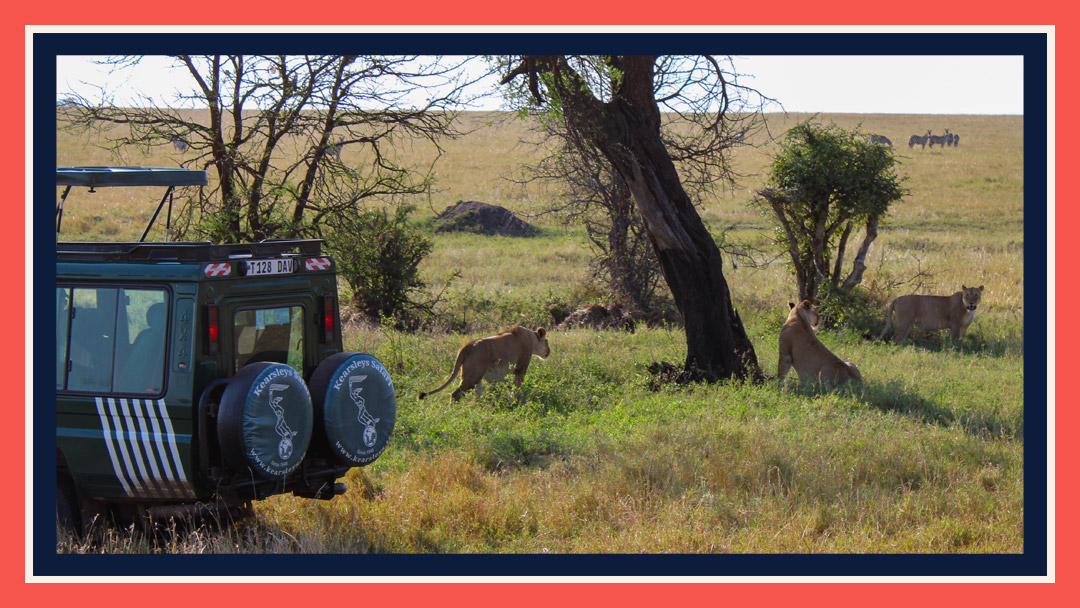
Length of the Safari
The length of time you spend on your African safari is an individual choice. Getting to and from Africa was a long trip, and we wanted to stay long enough to justify the effort. We opted for a 13-day safari. Considering all the places we went and what we saw, it felt like an appropriate amount of time.
Cost reduction tip #4
Shorten the length of your safari.
Once you do your research and decide how many locations you will need to visit, you might find you can see everything you desire on a much shorter safari, which is an obvious opportunity to reduce the cost.
Save Money Every Way Possible
Airfare.
We used frequent flier miles for our trip to and from Africa. We started saving up our frequent flier miles (using flights and credit cards) years in advance. As a result, when it came time to book our flights, we were limited on which flights we could take. In the end, we had two long (each 8 hours or more) along the way, one at JFK and the other in Doha. As we sat in the airport, I kept reminding myself we only spent $153.00 each for the flights, saving us a total of $3.500.
We also used our frequent flier miles to get a pass to the Admiral’s Lounge at JFK, which helped to make our first layover a bit more bearable.
There are ways to reduce the cost of your flights to and from your safari: Fly in economy class. Look for less expensive routings. Use frequent flyer miles to purchase tickets.
Mileage and cash-back credit cards.
Focus on those airline and cash-back credit cards. Pay attention and maximize your savings. Begin long before your safari, and you might find it saves you a lot of money.
Don’t forget: pay for your safari with a cash-back credit card, and you can use that money for other expenses, such as visas or souvenirs.
Cost reduction tip #5
Use frequent flyer miles and credit cards with rewards.
The bottom line: This is the trip you want to focus on using those credit cards with points, miles, or cash back. They can help reduce out-of-pocket expenses for any part of the trip, not just the airfare.
Additional Reasons Safaris are Expensive
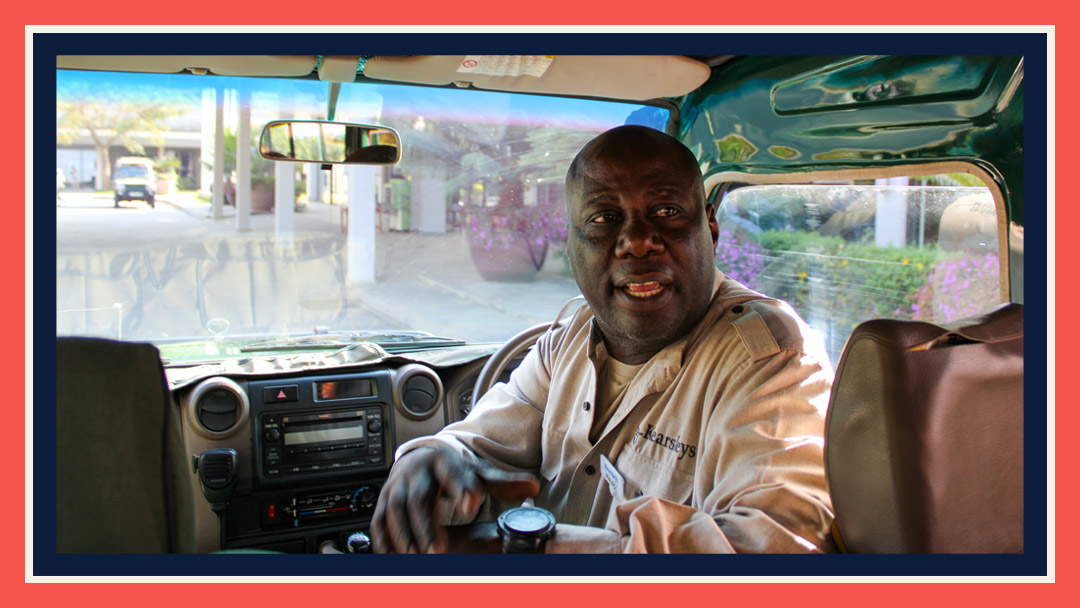
Guides.
You can’t take a safari without a guide. A good guide is vital to a successful safari. The vehicle driver will most often be your guide on game drives.
The more experienced guides know where to go and where to see the animals. Watching these guides navigate the parks, stop on a dime, and point out an animal you would never have seen is fascinating. It stands to reason that the top tour companies hire the best guides.
The parks have some signage, but not much. I don’t know how the guides learn their way around the parks, but they didn’t seem to have much trouble navigating.
That’s not to say that you won’t find a good guide on a less expensive safari; do your homework to ensure you have a qualified guide. Carefully reading reviews of past guests is your best bet.
Vehicles.
Safari vehicles take a beating every time they go out on the road. The roads on the game drives are incredibly bumpy. Don’t be surprised to hear a lot of rattles, no matter what type of vehicle you are in.
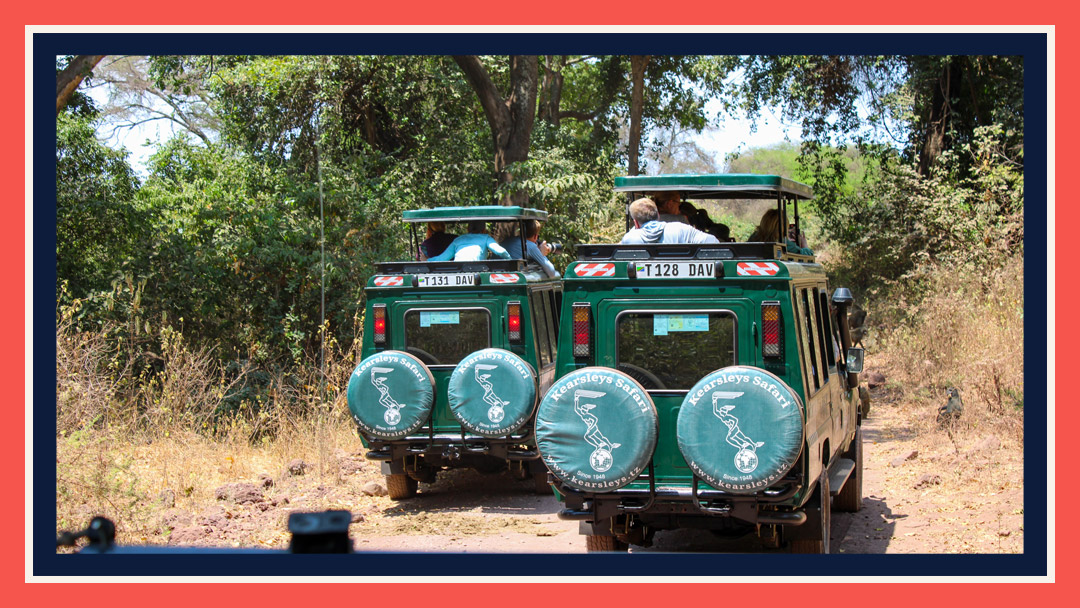
Most popular.
We saw a variety of safari vehicles while in Tanzania and Kenya. Most vehicles we saw on game drives were Toyota Land Cruises with pop-up rooftops. These roofs allow passengers to stand up to view and photograph the animals. A solid top above shelters passengers from most of the direct sunlight.
These are not luxury but utility vehicles, so don’t expect air conditioning. You will likely travel in these same vehicles when driving from one park to another. I promise you will feel every bump in the road when riding in these vehicles.
I do not doubt that these safari vehicles are costly, and with the beating they take daily, the lifespan must be relatively short.
Read reviews.
The costs of guides and vehicles are built into the safari cost. That means you can’t control those costs. It comes back to reading reviews, noting what type of vehicles will be used by the safari outfitter (or tour operator) you consider.
Food.
There are no restaurants or grocery stores within the national parks and conservancies. As a result, you will find that the hotels and camps include meals in the nightly rate.
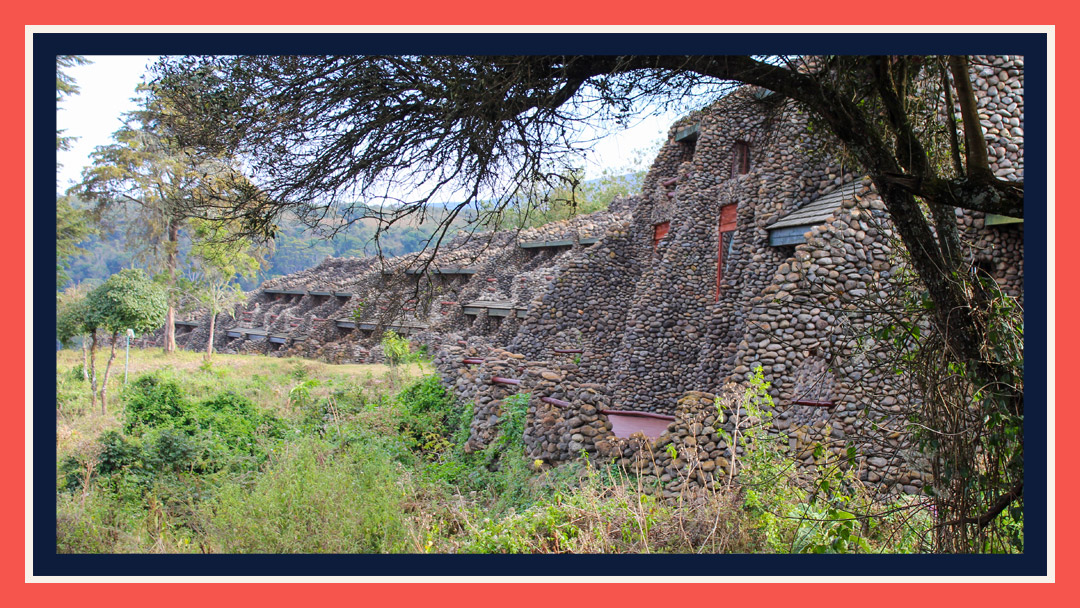
What you can expect to pay for an African Safari
There are safaris available in a wide variety of price ranges, but they will not be inexpensive. Remember the cost of the safari includes many things you would normally pay for as you travel. After looking at numerous safaris, I think a good estimate is at least $500 per person per day.
Whichever safari provider you use, be sure that you know what the cost includes.
Where NOT to Cut Expenses
Travel season.
When researching safaris, you will see that there are certain times of the year when the costs are lower, typically the rainy season. It rained a couple of evenings while we were on safari, and the difficulties of a safari in the rain became quite apparent. Remember, the good roads are dirt roads; sometimes, you will drive on a path.
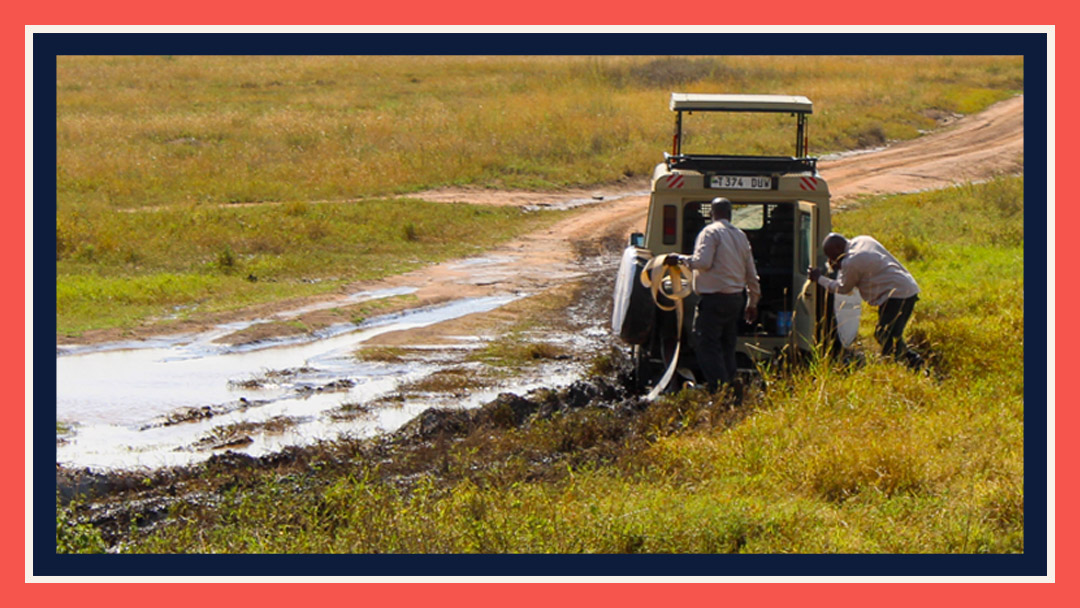
We saw vehicles stuck in the mud (and helped pull a couple out). We experienced a lot of slipping and sliding on muddy roads. It can rain anytime you are on safari, but if you are going during the rainy season, there will be many places the vehicles will not be able to go, limiting the animals you will see.
You will find the better the weather, the more enjoyable your safari.
It’s not the time to DIY.
I will just put it out there: This is not a trip I suggest you DIY to save money. I have two decades of experience in the travel industry, and I know I could not have coordinated a trip like that for two people, let alone 26! Too many things are particular to safaris and travel in Africa, i.e., too many things can go wrong.
I recommend you book your safari with a reputable tour operator. It is in your best interest to carefully read reviews of the tour operators you are considering. (Ideally, you will be using a travel agent to assist you in planning this trip of a lifetime. If you want a referral, let me know.)
Additional Expenses
An African safari is not a spur-of-the-moment trip. It should be carefully planned and thought out. There will be additional expenses above and beyond the apparent travel expenses you need to keep in mind.
Vaccinations and medication.
There will be required and suggested vaccinations to receive ahead of the trip. You may need to get a prescription for prophylactic medications. (Your medical insurance may pay all or part of these needs.)
Passport and visas.
You will need a passport. Visas may also be required depending on your nationality and to which countries you are traveling.
Travel insurance.
As always, one non-negotiable item is travel insurance, which I recommend you purchase through a third party, not the tour operator.
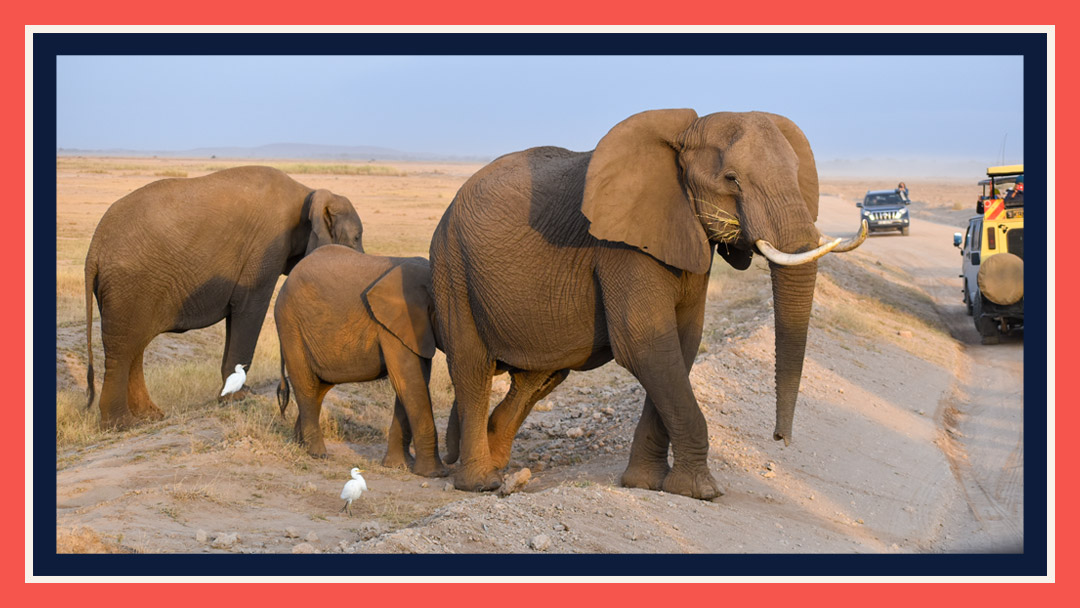
African Safaris are Expensive but Worth It
There are many, many components of a safari that are not readily apparent. The costs of going into the national parks and conservation areas are expensive. Even the most modest lodgings have unavoidable additional expenses. Most meals are included in the price of the safari. Guides are indispensable and are with you 24 hours a day. And, of course, the cost of vehicles and fuel used during game drives is a factor. Going from one location to the next, whether by road or air, is an additional expense.
Saving and planning ahead is the best way to ensure your African safari will indeed be the trip of a lifetime. (As a point of reference, we began the process four years in advance.)
Five Ways to Make a Safari More Affordable
Consider these options to reduce the cost of your safari:
- Driving vs. flying between locations,
- Going to fewer national parks and conservancies,
- Choosing lower-cost lodging,
- Taking a shorter safari, and
- Use frequent flyer miles and credit cards with rewards.
Although there are safaris available in a wide variety of price ranges; remember, they will not be inexpensive. By planning ahead and considering these five ways to make a safari more affordable, I’m sure you will have the trip of a lifetime.
What do you think? Are you planning an African safari? Have you taken a safari? Perhaps you have other ideas on reducing the cost of an African safari you’d like to share? I’d love to hear your thoughts.
